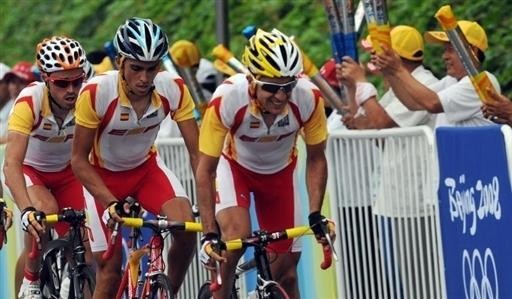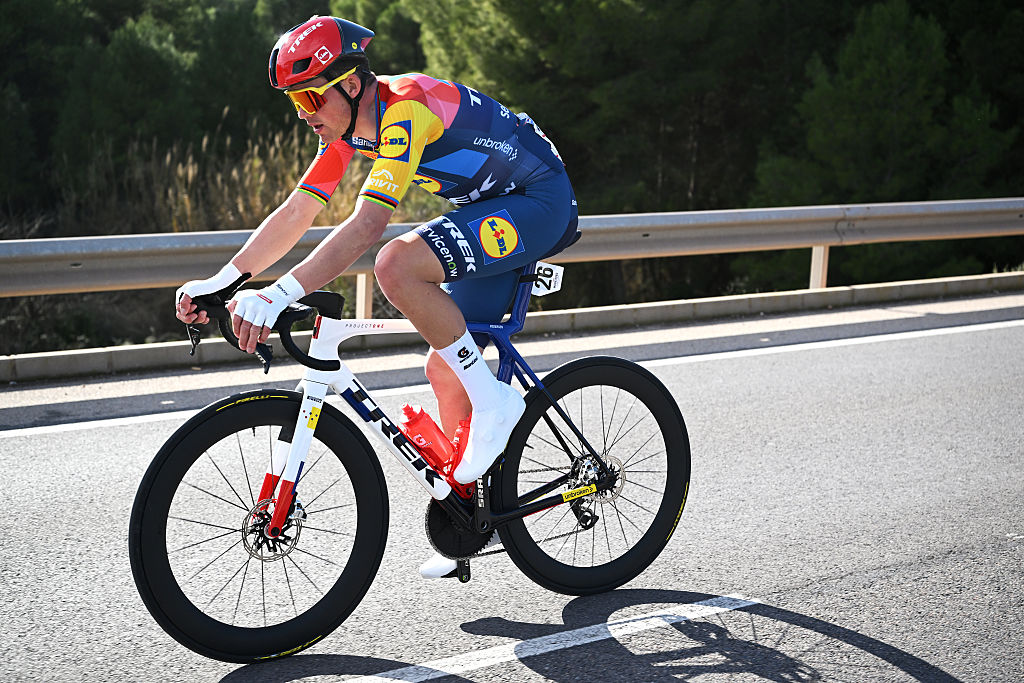Spain asserts its dominance in Beijing
With arguably the strongest teams in the Olympic men's road race, it wasn't surprising that it was...
The latest race content, interviews, features, reviews and expert buying guides, direct to your inbox!
You are now subscribed
Your newsletter sign-up was successful

With arguably the strongest teams in the Olympic men's road race, it wasn't surprising that it was Spain and Italy vying at the line for the gold medal in Beijing. But rather than a sprint between defending champion Paolo Bettini (Italy) and pre-race favourite Alejandro Valverde (Spain), the finish came down to the somewhat unexpected duo of Samuel Sánchez and Davide Rebellin. Both are champions in their own right, and both have paid their dues working for team-mates in the past.
Yet, in hindsight the outcome of Saturday's race should not come as much of a shock to those who have followed the careers of these two riders, especially considering the profile of the final circuit which included a long, gradual climb followed by a rapid descent into an uphill sprint to the line.
Sánchez has a history of winning stages with his daredevil descending, and packs a powerful sprint which he's used to take two stage victories in last year's Vuelta a España in addition to his win in the final time trial.
Rebellin showed prowess on this type of course at Paris-Nice in March, when he clinched the overall victory from Dutchman Robert Gesink on the penultimate stage simply by out-descending him. At the end of that stage, he out-sprinted his next nearest competitor to seal the overall win.
With all eyes on Bettini and Valverde, having another teammate in the winning move may have been the only chance to assure a medal. In the end, it was Sánchez who had the most power left in his legs, and was able to jump away with enough force to give himself time to cross himself and raise his arms in disbelief ahead of Rebellin.
"It's been a really good year for Spain," Sánchez said after the race. "We've won [Euro 2008] football, Nadal has won Wimbledon, Sastre won the Tour, so yes it's been a great year for Spanish sport. Spain is in a golden age for sport."
Valverde agreed that his team controlled the race. First they put Tour de France winner Carlos Sastre into the large move which went clear on the way to the circuits, and then Alberto Contador launched an attack when that group was caught. The Giro d'Italia winner was pulled into service to bring back a late break which threatened in the final 50km. But rather than the team's Grand Tour winners or Valverde going with the winning move on the final lap, it was Sánchez who marked the right riders and rode into the gold medal spot.
The latest race content, interviews, features, reviews and expert buying guides, direct to your inbox!
"The Spanish team was the strongest one and we showed it!" Valverde said proudly after the race. "Samuel Sánchez's victory is on of great satisfaction for the entire team. He was able to dominate a difficult situation at the end.
"Personally I felt good and had no problem with the hot weather," continued the Spanish champion, "but considering the fact that I was – together with Paolo Bettini – one of the biggest favourites everybody looked at us and there was little we could do. Samuel was able to take advantage of the situation and to give Spain its first medal in these Olympic games."
Rebellin, always magnanimous, was clearly disappointed but had nothing but praise for Sánchez. "It's great to be on the Olympic podium; I would have like to have won of course, and I've had a lot of second places, but this is a special second place. Samuel Sánchez was the strongest today, I think the strongest were Sánchez and Andy Schleck, when they attacked it wasn't easy to go with them."
Go to Cyclingnews' full report, results and photos of the men's Olympic Road Race.

Laura Weislo has been with Cyclingnews since 2006 after making a switch from a career in science. As Managing Editor, she coordinates coverage for North American events and global news. As former elite-level road racer who dabbled in cyclo-cross and track, Laura has a passion for all three disciplines. When not working she likes to go camping and explore lesser traveled roads, paths and gravel tracks. Laura specialises in covering doping, anti-doping, UCI governance and performing data analysis.
